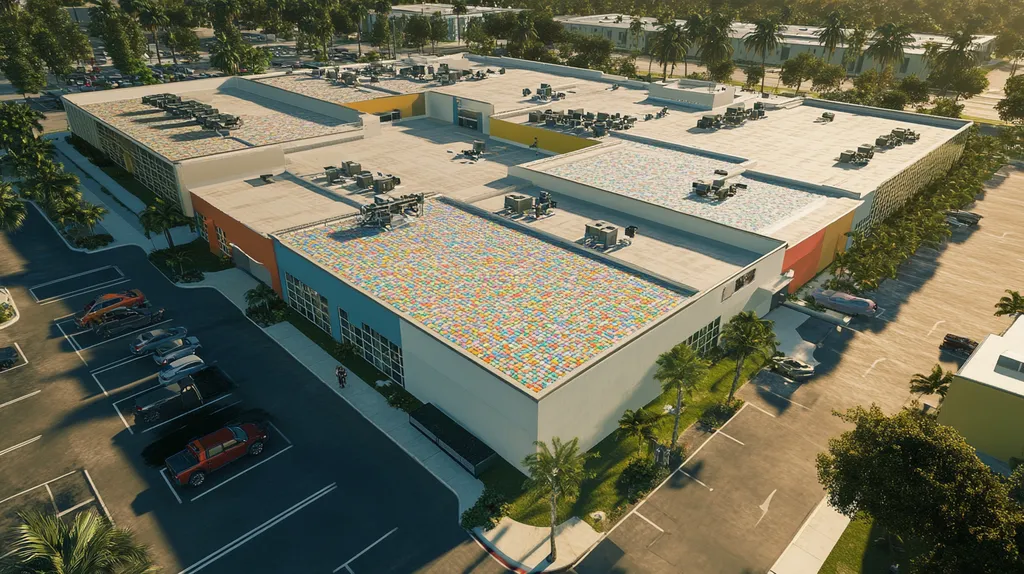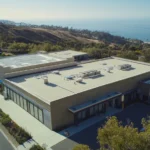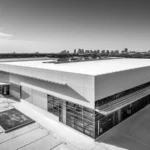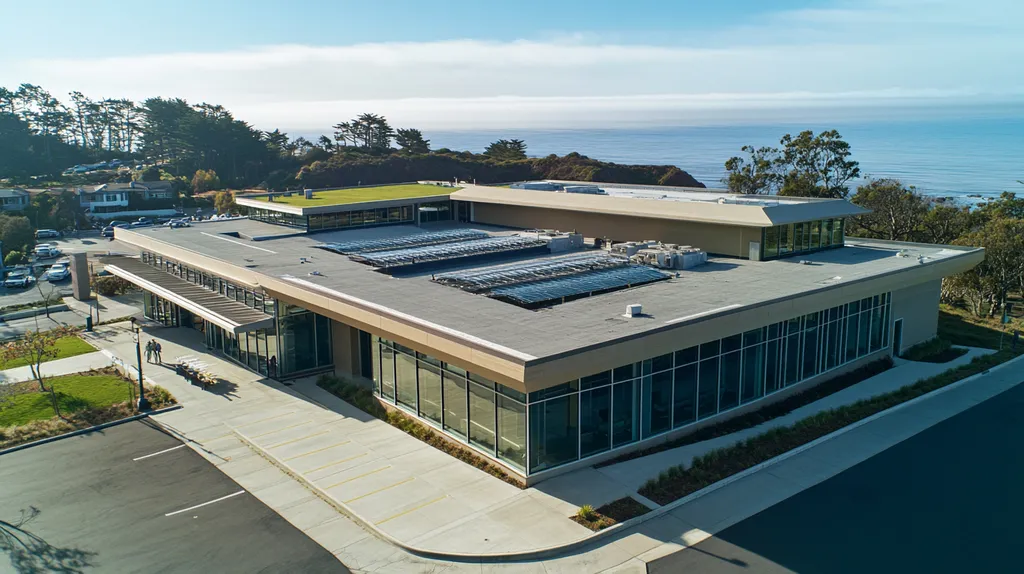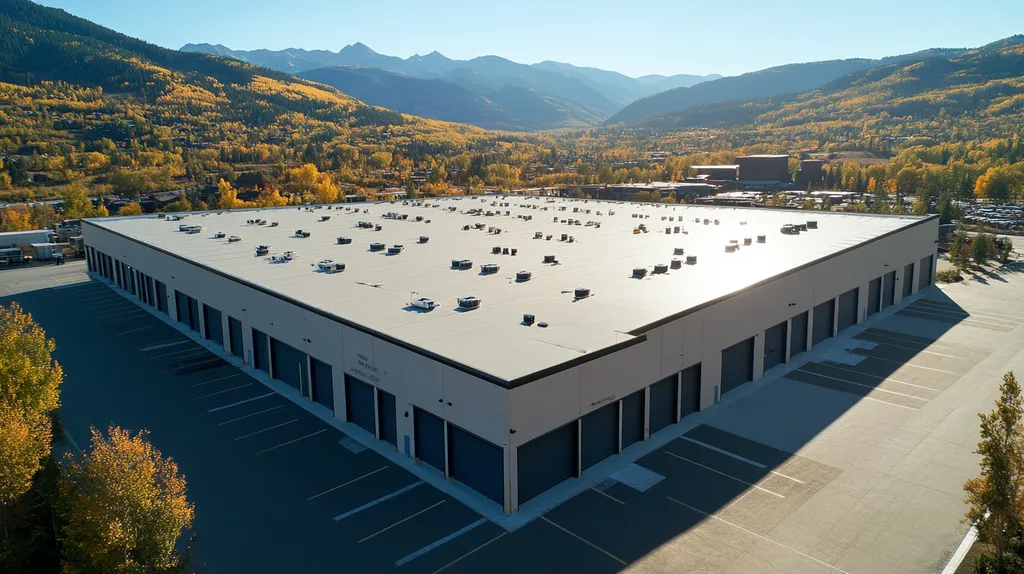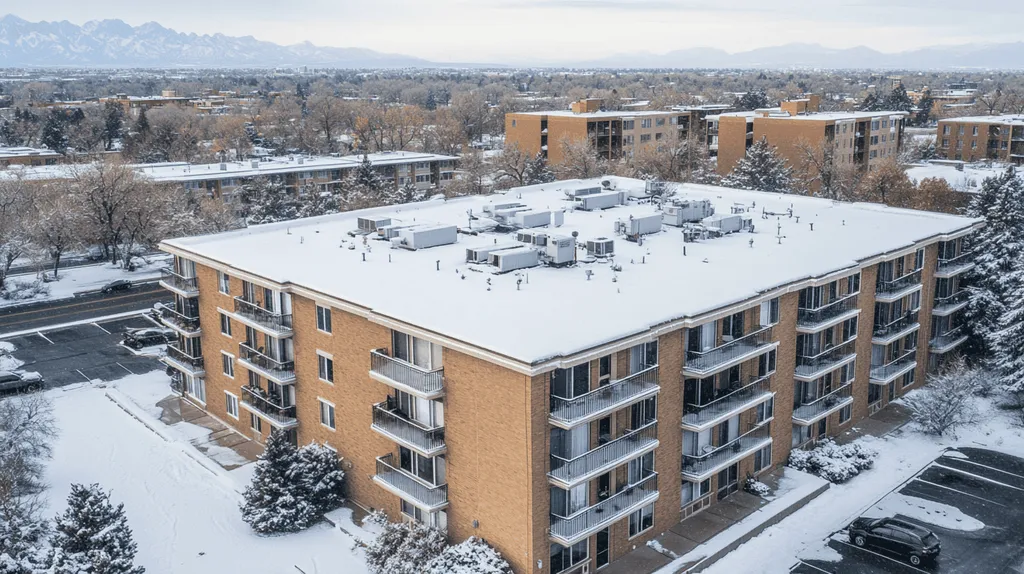When it comes to industrial roofing, warranty costs can make or break your bottom line. Studies show that 40% of commercial roof failures occur due to inadequate warranty coverage, leading to repair bills that can soar into six figures.
From material limitations to maintenance requirements, numerous factors determine whether a warranty will truly protect your investment or leave you exposed to devastating expenses.
This comprehensive guide breaks down the critical elements that influence industrial roof warranty costs, empowering property owners to make informed decisions that safeguard their facilities for decades to come.
SECTION 1: THE BASICS EXPLAINED
Understanding the cost of an industrial roof warranty isn’t just important—it’s crucial. A solid warranty acts like an insurance policy against unforeseen roofing failures that can lead to sky-high repair bills and major business disruptions. Consider this: nearly 80% of roofing failures strike within the warranty period. Grasping the essentials of these warranties can make the difference between a savvy investment and a financial pitfall.
What It Is (In Plain Language)
An industrial roof warranty is a backing from the roofing manufacturer or contractor, promising to cover specific defects and failures. Think of it as a safety net against issues like leaks, shoddy workmanship, and material flaws. Different types and durations of coverage exist, impacting both protection and budget.
Warranties typically fall into two camps: manufacturer warranties, which cover materials, and labor warranties, which focus on the installation process. It’s vital for property owners to understand these distinctions to ensure they get complete coverage for their roofs.
Each warranty comes with its own terms and conditions, detailing what’s included and what’s off-limits. Familiarity with these details is key, as comprehensive coverage can save property owners from unexpected financial headaches later on.
In short, warranties deliver essential protection against potential roofing disasters, equipping property owners to make smart choices about their roofing investments.
Why It Matters (To Your Building)
Your roof is arguably one of the most vital elements of a commercial or industrial building. A durable and well-maintained roof shields the structure from the elements, protecting the safety and comfort of its occupants. A solid warranty is crucial for keeping that shelter intact.
If there’s a gap in roof protection, you could face leaks, mold, and even structural damage. These problems evolve rapidly, potentially resulting in steep repair costs and operational headaches. Investing in an industrial roof warranty is a smart move to manage these risks.
Moreover, a strong warranty can boost your building’s value. Future buyers often look for properties with solid warranties, signaling that the roof has been taken care of. This factor can be a game-changer during sales or lease discussions.
A warranty isn’t merely a fallback plan; it’s a strategic investment in your building’s durability and worth. Recognizing the role of a warranty empowers property owners to make informed financial choices.
How It Works
An industrial roof warranty specifies the conditions under which coverage applies. Typically, these warranties consist of two main components: coverage terms and exclusions. Coverage terms outline the types of failures that will be addressed, while exclusions clarify what situations could void the warranty.
Many warranties require ongoing maintenance to stay active. For example, property owners may need to keep records of inspections and repairs to ensure the warranty remains valid. Ignoring these maintenance must-dos can result in reduced coverage or, worse, complete cancellation of the warranty.
Warranties vary in length—some last just a few years, while others can extend for decades. While longer warranties generally come with a heftier price tag, many property owners find that the peace of mind they provide is worth it. Weighing the cost against the duration is essential for effective budgeting.
Finally, understanding the claims process is crucial. A straightforward and efficient claims process can ease the burden when roofing issues arise. Property owners should familiarize themselves with these procedures to avoid complications during emergencies.
SECTION 2: PRACTICAL APPLICATIONS
The stakes of understanding roof warranties are incredibly high for industrial property owners. A single roofing failure can lead to costly water damage repairs ranging from thousands to millions of dollars. Making informed decisions about warranties not only safeguards the integrity of a facility but also ensures smooth operations. In this section, we’ll dive into common uses of warranties, pinpoint critical moments when they are most vital, and explore how they interact with other systems within a building.
Common Uses & Examples
Roof warranties are multi-purpose tools, offering protection against a range of issues, from manufacturing defects to installation mistakes. Consider a standard 20-year warranty on a TPO roof: it promises a leak-free and durable performance throughout its life. These warranties can address specific conditions like ponding water and thermal expansion, which are notorious in the industrial sector.
Take, for example, warranties that guard against wind uplift. This feature is essential for warehouses or distribution centers in storm-prone regions. Being well-versed in how these warranties work can play a crucial role in planning long-term maintenance and scheduling roof replacements.
Moreover, different roof types come with their own warranty variations, such as single-ply, built-up, or modified bitumen systems. Each type presents unique warranty stipulations shaped by installation risks and complexity. Understanding these nuances allows facility managers to choose the right coverage for their specific application.
When You Need It Most
Knowing when to focus on roof warranties is key to managing risk effectively. For instance, during the construction phase, property owners should meticulously assess warranty options to mitigate future issues stemming from improper installation. A well-structured warranty not only protects the investment but can also enhance the roof’s value when it comes time to sell.
Critical moments, such as right after severe weather events, underscore the importance of reviewing warranty coverage. Many warranties stipulate that any damage must be reported promptly, so swift action by facility managers is essential to maintain coverage.
Additionally, aligning yearly inspections with warranty evaluations is wise. This practice helps catch minor issues before they snowball into costly repairs. Focus on the timing of warranty considerations can stave off unexpected expenses and operational disruptions, keeping systems running smoothly.
Interactions With Other Systems
Roof warranties don’t operate in a vacuum; they interact with various building systems, including HVAC, plumbing, and electrical. A solid warranty often clarifies how these components influence roof performance, notably regarding ventilation and drainage. Neglecting drainage design can lead to ponding water, a condition that many warranties may limit or exclude if not properly addressed.
Moreover, modifications like installing solar panels or green roofs can affect warranty terms. Property owners must ensure any changes are documented and comply with warranty requirements, as these adjustments can easily void coverage.
Collaboration with contractors during installation is imperative to align all systems with warranty needs. This attention to detail is crucial for maintaining the roof’s integrity and avoiding costly disputes down the line. Understanding these interactions ultimately helps facility managers maximize the lifecycle and performance of their roofing systems while effectively protecting their investment.
SECTION 3: KEY TERMINOLOGY DECODED
In the often-confounding realm of industrial roofing, mastering the terminology is not just beneficial; it’s essential. Misunderstanding key terms can result in costly decisions that jeopardize investments. Consider this: a staggering 30% of facility managers lack a grasp of critical warranty terms. This lack of knowledge could end up costing them thousands in maintenance and repairs. This section seeks to unravel important roofing terms, demystify industry jargon, and clarify measurements, empowering stakeholders to make informed choices.
Essential Terms Explained
Grasping key roofing warranty terms is fundamental for making sound decisions. Terms like “labor,” “material,” and “scope of work” delineate contractor responsibilities and the protections offered. For instance, “labor” covers installation costs, while “material” identifies the specific products included in the warranty.
The “coverage period” defines how long the warranty protection lasts, which can vary greatly depending on the roofing system. Familiarity with these terms enables property owners to interpret warranty documents effectively, allowing them to identify potential gaps that might spell trouble down the road.
Another crucial aspect is “exclusions,” which detail instances where the warranty will not apply. Being well-acquainted with these exclusions can help avoid nasty surprises—like discovering that storm damage isn’t covered. Understanding these nuances equips property owners to negotiate advantageous warranty agreements.
Finally, distinguishing between “voiding” and “termination” is essential. A warranty can be voided due to specific actions taken by the owner, while termination signifies the end of coverage after the specified period expires. Clarity on these definitions can prevent significant financial setbacks.
Industry Jargon Translated
Wading through industry jargon can be a real headache for property owners. Terms like “membrane roof” or “field repair” may sound foreign but are critical to understanding roofing systems. A “membrane roof” typically refers to a single-layer roofing material frequently used in commercial spaces.
Knowing what “field repair” means is equally important. This term represents repairs conducted in the main body of the roof, rather than on seams or edges. If warranties demand certified inspections, terms like “roofing contractor” and “certified applicator” become pivotal in discussions about valid repairs.
Translating such jargon not only eases communication with contractors but also empowers property owners during negotiations. A clear grasp of technical terms allows stakeholders to safeguard their investments more effectively.
Measurement & Units Simplified
Measurements and units associated with roofing warranties can seem intimidating at first glance. One key unit is “squares,” which measure roofing area—one square equals 100 square feet. Familiarity with this unit helps property owners grasp the extent of their coverage without getting tangled up in numbers.
Another important measurement is the “R-value,” which indicates a material’s thermal resistance. A higher R-value means better insulation against heat transfer. By understanding R-values, property owners can assess the efficiency of their roofing materials more accurately.
Furthermore, “warranted thickness” is essential for those dealing with membrane roofs. This term denotes the minimum thickness the warranty guarantees, affecting both the roof’s longevity and performance. Roofs not meeting this thickness may deteriorate faster, resulting in hefty repair bills.
Lastly, it’s crucial to know how to measure slope in roofing systems. Slope is expressed as a ratio (like 4:12), representing the vertical rise compared to the horizontal run. This detail plays a big role in drainage and can significantly influence a roof’s lifespan. By simplifying these measurements, property owners can engage meaningfully in important warranty discussions.
SECTION 4: DECISION FACTORS
When it comes to roofing, overlooking warranty costs is a recipe for disaster. A misguided choice can lead to significant financial pitfalls, with nearly 40% of roofing claims stemming from warranty issues. It’s crucial to evaluate factors like cost, performance trade-offs, and longevity to make informed decisions that protect investments for the long haul.
Cost Considerations
The cost of a roof warranty isn’t just a line item on a budget; it’s a critical factor in ensuring long-term protection. Cheaper warranties may sound appealing, but they often provide limited coverage and can leave property owners high and dry. For example, a low-cost warranty might cover only material defects, excluding the labor to fix them or any associated damages.
It’s vital to dive deep into what each warranty covers relative to its price tag. Make sure to tally the total cost of ownership, factoring in potential repair expenses that might arise down the road. Choosing a more comprehensive warranty may appear initially pricey, but it could save property owners thousands in the end.
Reading the fine print is essential. Some warranties might look attractive until hidden fees and exclusions are unearthed. These often determine the true value of the warranty and can be the difference between a sound investment and unexpected expenses.
Ultimately, weighing upfront costs against the long-term benefits of a robust warranty is a smart move. Investing more now can offer peace of mind and protect the property’s value down the line.
Performance Trade-offs
Performance trade-offs are a big deal when selecting a roof warranty. Typically, higher-performing roofing materials come with more extensive and longer warranties. Take thermoplastic roofing systems, for instance—they often outperform traditional options, leading to more favorable warranty conditions.
The choice of roofing material dramatically influences the scope of warranty options and costs. Some materials are naturally resilient to harsh weather, allowing for extended warranties that prevent future repair headaches. This trade-off can save loads of cash in the long run.
Also, it’s important for property owners to assess their facility’s unique needs. Buildings in extreme climates should look for warranties that cover adverse weather impacts. Tailoring choices to environmental factors can enhance roof performance and protect investments.
Balancing material performance against warranty terms is crucial. Owners should dig into what a warranty entails and closely examine the performance metrics of the roofing systems in question.
Lifespan & Durability Factors
The lifespan and durability of roofing directly affect warranty decisions. Generally, roofs with longer lifespans offer stronger warranties because manufacturers have faith in their products. A high-quality single-ply membrane can last over 25 years, lining up perfectly with extended warranty offerings.
Durability depends on several factors, including material quality, installation practices, and environmental exposure. A robust roof requires fewer repairs, leading to fewer warranty claims and reinforcing the reliability of the investment.
Property owners must ask themselves how long they plan to occupy a building when selecting a warranty. A lengthy warranty can provide better value, especially for facilities designed for long-term use. Routine maintenance plays a critical role as well, significantly extending a roof’s lifespan and ensuring warranty coverage.
In conclusion, understanding longevity and durability factors is essential for making smart decisions about roofing warranties. An effective warranty should align with both the roof’s expected lifespan and the long-term goals of the property investment.
SECTION 5: COMMON CHALLENGES
When it comes to industrial roof warranties, ignorance isn’t bliss—it’s costly. In fact, up to 70% of roofs may reveal severe wear within just a decade. Identifying issues while they’re small can save property owners from hefty repair bills and help maintain a roof’s lifespan. This section dives into frequent challenges, the warning signs you should never ignore, and proactive strategies that can protect your investment.
Frequent Problems & Solutions
Commercial roofs face a host of issues, including leaks, pooling water, and punctured membranes. These headaches often stem from poor installation, subpar materials, or environmental impacts. For example, a membrane that can’t adjust to temperature shifts can crack and turn into a leak-fest.
The antidote? Regular maintenance checks. Property owners should schedule bi-annual inspections with roofing pros. This proactive approach not only identifies potential issues before they balloon into expensive nightmares but also keeps the roof in tip-top shape.
Choosing high-quality materials and seasoned contractors can significantly minimize these risks. While it might seem like a hefty initial expense, investing in a durable roofing system often pays dividends through reduced warranty claims and extended roof life.
Additionally, knowing the ins and outs of the warranty can shape how maintenance is performed and clarify which issues are covered, preventing any nasty surprises down the road.
Warning Signs To Watch For
Staying alert to warning signs is crucial for extending a roof’s lifespan. Look out for mold growth, water stains on ceilings, and noticeable granule loss from roofing materials—all red flags that hint at severe underlying problems or potential water intrusion.
Excessive ponding after a rainstorm is another cause for concern. If standing water lingers for more than two days, it’s a surefire sign of drainage issues that need immediate attention. Left unaddressed, ponding can lead to significant leaks or even roofing collapse.
Curling or buckling membranes aren’t just unsightly—they indicate that the roof is failing to perform as it should, jeopardizing insulation and weather resistance.
By monitoring these signs and acting quickly, property owners can maintain roof integrity and ensure compliance with warranty terms, avoiding costly repairs down the line.
Preventative Approaches
Effective preventative maintenance can be a game-changer for industrial roofs. Regular inspections and scheduled maintenance can catch minor issues before they spiral into significant problems, ensuring that warranties deliver their full value over time.
Incorporating robust drainage solutions, such as scuppers and strategically placed drains, mitigates water accumulation and curtails leak risks, safeguarding the roof from premature degradation.
Educating staff on appropriate roof usage and access can also pay off. Clear protocols about foot traffic and equipment placement can prevent unintended damage, keeping the roof in prime condition.
Lastly, considering local climate conditions when choosing roofing materials can optimize durability. Selecting the right materials not only enhances performance but also lowers the likelihood of warranty claims.
SECTION 6: NEXT STEPS & RESOURCES
Taking the time to understand the factors that influence the cost of an industrial roof warranty isn’t just smart—it’s vital for protecting significant investments that can run from thousands to millions of dollars. With the stakes this high, asking the right questions, consulting industry standards, and tapping into straightforward learning resources becomes essential. This section outlines the crucial next steps to ensure valuable roofing investments stand the test of time.
Questions To Ask Providers
Before signing on the dotted line for a roofing warranty, property owners should arm themselves with key questions. First up, what’s covered? Dive into the specifics of warranty coverage—understanding what damages are included can save you from unexpected repair bills down the road.
Next, don’t skimp on asking about the duration and renewal options. A warranty might look comprehensive at first glance, but if it has a short effective period, it could leave your roof exposed after a few years.
Equally important is the claims process. How are claims filed? What’s the typical turnaround time? Knowing these details can make or break your experience when a roofing issue strikes. A provider’s responsiveness now can predict how they’ll behave when it’s crunch time later.
Finally, investigate the provider’s reputation. A trustworthy warranty provider should be able to showcase past claims and customer satisfaction. After all, you deserve the peace of mind that comes with a dependable partner.
Industry Standards & Guidelines
Navigating roofing warranties requires a solid understanding of industry standards. Organizations like the National Roofing Contractors Association (NRCA) are gold mines for resources that clarify best practices in this field. They can guide property owners in sifting through warranty options effectively.
Stay abreast of local building codes, too. Warranty providers should reference these codes to ensure that your chosen warranty not only meets industry standards but also complies with legal requirements.
Additionally, understand the differences between popular warranty types, such as manufacturer versus installer warranties. Each serves different roles, and knowing which fits your needs can save a chunk of change while ensuring solid coverage.
Regular reviews of industry standards are essential. Staying informed about evolving materials and policies can enhance roofing solutions and extend the lifespan of your investment.
Further Learning Simplified
Strengthening knowledge around roofing warranties starts with accessible resources. Many websites offer online courses and webinars tailored for property owners and facility managers. These tools break down complex warranty language into digestible bites.
Industry podcasts and publications can keep you in the loop about the latest trends and expert opinions on warranty features. Subscribing to these can turn you into a savvy stakeholder who knows what to look for.
Lastly, engaging with local roofing associations opens up valuable networking opportunities. Connecting with industry professionals will not only grant you access to their expertise but also put you in touch with shared resources.
Taking advantage of these educational avenues equips property owners with the confidence to navigate warranty selections, safeguarding their commercial investments effectively.
The Bottom Line
With 40% of commercial roof failures tied to warranty issues, the stakes couldn’t be higher for industrial property owners seeking to protect their investments.
Understanding warranty cost factors – from material specifications to maintenance requirements – can mean the difference between comprehensive protection and devastating expenses that spiral into six figures.
Smart warranty decisions require balancing initial costs against long-term value while carefully reviewing coverage terms, exclusions, and claims processes.
The days of treating warranties as mere paperwork are over – they’re now strategic tools that directly impact building value, operational continuity, and bottom-line profitability.
By leveraging industry standards, asking tough questions of providers, and maintaining vigilant oversight, property owners can secure warranties that deliver genuine protection for years to come.
FREQUENTLY ASKED QUESTIONS
Q. What is an industrial roof warranty in simple terms?
A. An industrial roof warranty is a promise from the manufacturer or contractor to cover specific defects and failures, like leaks and poor workmanship. It basically acts as a financial safety net, ensuring you don’t face unexpected repair costs.
Q. When should I focus on my commercial roof warranty?
A. It’s crucial to focus on warranties during construction, after severe weather events, and during yearly inspections. These moments ensure that any potential damage is addressed quickly to keep your roof protected and maintain warranty coverage.
Q. What are some essential terms I need to know regarding industrial roof warranties?
A. Key terms include ‘coverage period,’ which shows how long the warranty lasts, and ‘exclusions,’ which outline what damages aren’t covered. Understanding these terms helps avoid costly mistakes when dealing with warranties.
Q. Why is evaluating my commercial roof warranty costs important?
A. Evaluating warranty costs is crucial because skimping can lead to uncovered repairs or increased expenses. A cost-effective warranty can save you from unpleasant surprises after the fact, ensuring you have comprehensive protection for your investment.
Q. What common challenges do I face with my industrial roof warranty?
A. Common challenges include overlooked repairs, misunderstood coverage, and failing to recognize warning signs like leaks or mold growth. Being proactive about maintenance and understanding your warranty terms helps prevent major headaches later.
Q. What resources can I use to learn more about industrial roof warranties?
A. Look for online courses, industry podcasts, and resources from organizations like the National Roofing Contractors Association. These outlets provide valuable insights and help you navigate warranty options effectively.
Q. How do warranty changes affect my commercial roof?
A. Changes like installing solar panels or altering drainage might affect your warranty terms. Always check terms and ensure modifications comply with warranty requirements to avoid voiding coverage.



